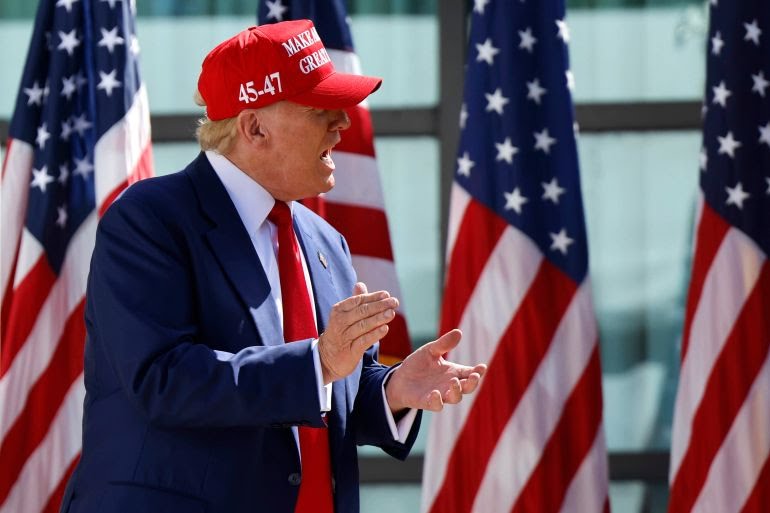The US Supreme Court is set to announce a pivotal decision on Monday regarding whether former President Donald Trump can be prosecuted.
The ruling is crucial for determining if Trump can face trial for allegedly conspiring to overturn the 2020 election results before this year’s election, where he is a Republican candidate.
“We are writing a rule for the ages,” said conservative justice Neil Gorsuch, who was appointed by Trump, as arguments were heard in April.
“This case has huge implications for the presidency, for the future of the presidency, for the future of the country,” added Justice Brett Kavanaugh, another Trump appointee.
Trump’s original trial date in the election case was set for March 4, prior to his November rematch with President Joe Biden.
However, in February, the Supreme Court, dominated by conservative justices, including three appointed by Trump during his term, agreed to hear his argument for presidential immunity.
This decision resulted in the case being put on hold while the Court considered the matter in April, significantly delaying the trial process.
The Supreme Court is unlikely to rule that Trump has complete immunity. During the April arguments, justices appeared skeptical of his claims, with some questioning whether this would allow a president to “commit crimes with abandon.” However, the decision’s scope and wording could further delay the trial, reducing the chances that Trump will face prosecutors before the November 5 vote.
For example, justices might remand the case to lower courts to determine which allegations against the 78-year-old Trump constitute official acts and thus may be immune from prosecution. This would inevitably prolong the trial process, which regardless of the ruling, requires months of preparation to resume.
Trump, facing four criminal cases, has been employing various tactics to delay the trials until after the election. On May 30, a New York court convicted Trump on 34 felony charges related to falsifying business records to cover up a sex scandal during the 2016 presidential campaign, making him the first former US president convicted of a crime. His sentencing is scheduled for July 11.
Many legal experts considered the New York hush money case the weakest of the four, yet it is likely the only one proceeding to trial before the election. Trump’s lawyers have successfully delayed the other three trials, which involve his efforts to overturn the 2020 election results and allegations of hoarding top-secret documents at his Florida home.
If re-elected, Trump could potentially order federal trials against him to be closed upon assuming the presidency in January 2025.
Get instant and latest news updates via Our WhatsApp Community or Google News online channel.
Credit – AFP


